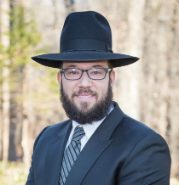Charismatic Faith / Graceful Masculinity: Vayechi

Part of a year-long Torah series on graceful masculinity and Jewish values.
בֵּן פֹּרָת יוֹסֵף, בֵּן פֹּרָת עֲלֵי-עָיִן; בָּנוֹת, צָעֲדָה עֲלֵי-שׁוּר.
A charming son is Joseph, a charming son to the eye; each of the daughters climbed heights to gaze. (Genesis 49:22)
Although Joseph was aware of his exceptional desirability, he never relied on his good looks or the privilege of being Jacob and Rachel’s oldest son — or on the financial success or political power that he accrued in Egypt. We read in Psalms that praiseworthy is the person who has made Hashem their trust (Psalms 40:5). According to the midrash, this refers to Joseph.1 He is the paradigm of a person who trusts in G-d. When the baker and the cup-bearer are disturbed by their dreams, Joseph tells them, “G-d has all dream interpretations.” (Genesis 40:8) When Joseph is later summoned to explain Pharaoh’s dreams, he declares, “It is not me. G-d will answer the peace of Pharaoh (Genesis 41:16).
Yet, the same midrash faults Joseph for asking the cup-bearer twice (Genesis 40:14) to help him get out of prison. Because Joseph relied on a person, by asking for their intervention, instead of just having faith in God, he was forced to spend an additional two years in prison, one for each of the requests. It is implied however, that had he only asked once he wouldn’t have been punished at all. So why isn’t Joseph simply sentenced to one year, for the one unnecessary ask?
This midrash highlights one of the paradoxes of living a life of faith. Faith can be a propelling force that drives a person to seek and effect change, or it can comfort a person with the belief that everything will be ok so they don’t need to act. How can we balance our belief that God will cause everything to turn out as it should with the imperative to try our hardest to accomplish what we can? Wasn’t it proper for Joseph to try to get himself released from jail? Shouldn’t we always try to better our situation without sitting back and waiting for God to make it better?
Faith, or bitachon in Hebrew, enabled Joseph to tell his brothers time and again (Genesis 45:8, Genesis 50:20) that it was G-d’s plan that he go down to Egypt. Rashi translates “a charming son” as “a son of grace, chein.” Bitachon, בטחון, is an anagram of טוב חן – good grace. Jealousy only exists in the absence of faith in G-d’s wisdom and oversight. If we really believe that G-d has given each of us what we need to fulfill our unique purpose in this world, how could we possibly want what another has?
Our rabbis point point out that the Hebrew word for worry is dayga, דאגה, which has four of the first five letters of the Hebrew Alphabet, and is just missing the bet, ב, for bitachon. It is that bet “ב” that we find as the first letter of Genesis. The stories in it, known as aggadah / אגדה (those same four letters again!), help inspire our faith, reduce our anxiety, and build the foundation for our relationship with G-d and each other.
The Gra says that the large “ב”, in the first word of the Torah “בראשית”, “In the beginning”, represents “בטחון”, faith. He further teaches that the first word can be parsed as “בראש-ית” at the head of “ית” , an allusion to the three letters in the Hebrew alphabet that head “ית”: namely ב,ט,ח2. Together, these three letters form the root of “faith” — in Hebrew, בטחון, which can be understood as G-d’s promise of our committed relationship.3 Joseph was in an exceedingly intimate dynamic with G-d. He lived with a deep awareness of G-d. But the moment he diverted his focus to another, he lapsed in his awareness of G-d — to the extent that it was clear to God that even the first time that he asked the cupbearer for help, he had the wrong motivation, and was therefore held responsible for both requests.
Motivation matters. And our connection with G-d matters. And — one never loses by doing the right thing. Our task is to seek to do the right thing, with the right motivation, maintaining our connection with our values and their Source. If we believe that G-d is the source of everything, how could we possibly advance our position by going against the will of the Creator, hurting another person, or misusing our resources for selfish gains? Each one of us has a connection to G-d, the Torah, and each other. We must see ourselves as partners and coworkers in the elevation of it all — and like Joseph, allow our charming and grace-filled faith to sustain us in the work in healing this broken world together.
Discussion questions:
The stories in our tradition are meant to model what our good and bad choices can lead to. What is your favorite Jewish story where faith led to a happy ending?
If Joseph was alive today, what do you think he would be doing with his time to fix our world?
Charisma is powerful. How can we make sure that it is used for in the right ways?
Who today, is a good example of one who using their status for the greater good?
1. בראשית רבה פ”ט:ג↩
2. בית, טית, חית↩
3. תי = 410 = קדוש↩

By Rabbi Mike Moskowitz. See other #MenschUp posts here.









